Liverpool may have been second-best against Arsenal in the 2001 FA Cup final, but their 2-1 win remains one of the most dramatic days in the club’s history.
It isn’t particularly easy to warm to Michael Owen.
The monotonous commentary; the fact he described Man United as ‘we’; his bizarre claim that he has only watched eight films in his lifetime – he’s not without fault.
What should never be forgotten is how unstoppable he was for Liverpool at his peak, though, with few strikers in the club’s history more devastating.
Owen achieved a huge amount in his career, but it was a sweltering afternoon in Cardiff back on May 12, 2001, that will always define his time at Anfield.
Cup giants
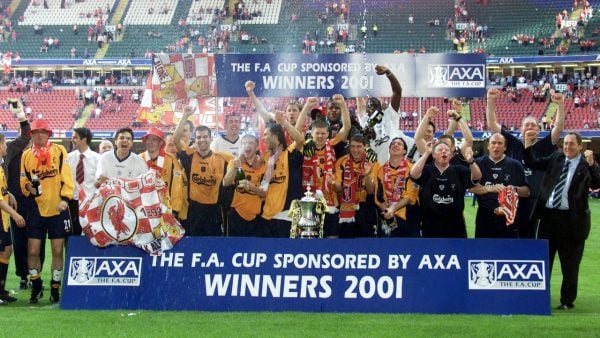
The 2000/01 season may have been usurped in Reds hearts by the Miracle of Istanbul and stunning achievements under Jurgen Klopp, but it is iconic in its own right.
Gerard Houllier assembled a formidable squad that opted for defensive resilience over attacking class, but their ability to get the job done was almost unparalleled.
Sander Westerveld was a reliable goalkeeper at that point, prior to falling to pieces, while Markus Babbel, Sami Hyypia, Stephane Henchoz and Jamie Carragher made up a rock-solid back-line.
A shamelessly narrow midfield was often made up of Didi Hamann, Steven Gerrard, Gary McAllister and Danny Murphy, with Patrik Berger, Vladimir Smicer and Nick Barmby offering wider supporting roles.
Owen and Emile Heskey were Houllier’s go-to strikeforce, but Robbie Fowler remained a top-quality footballer and Jari Litmanen was a fading-but-still-brilliant force.
What this group of players achieved was nothing short of extraordinary, with not only a cup treble sealed, but also qualification for the Champions League for the first time.
Liverpool had to battle their way through 63 matches, in all competitions, in what proved to be a mammoth effort by the time their final game – the UEFA Cup win over Alaves – had finished.
It was the FA Cup final, four days earlier, that will always remain the highlight of that campaign, though…
Road to Cardiff
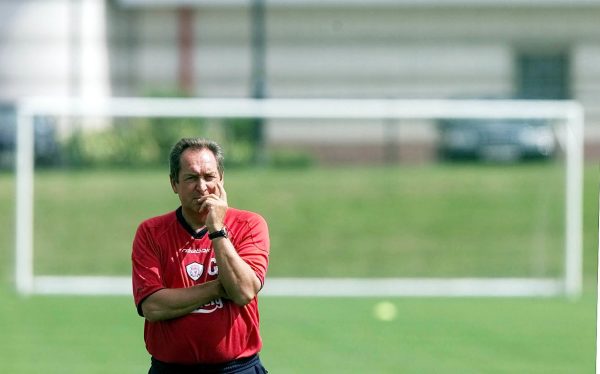
It had been nearly nine years since Liverpool’s last FA Cup triumph when the 2000/01 competition got underway, with a painful 1996 final defeat to Man United still fresh in the memory.
It was plain sailing to begin with as Rotherham United were dispatched 3-0 in the third round, before an ominous trip to a vibrant Leeds side.
The 2-0 win at Elland Road was seeped in drama, as last-gasp Barmby and Heskey efforts sent the Reds into the last-16 in front of a bouncing away end.
Back-to-back 4-2 victories were then recorded, against Man City and Tranmere Rovers, the latter of which were managed by ex-Liverpool hero John Aldridge.
And if a trip across the Mersey to face then-First Division Tranmere was deemed a kind draw, a semi-final clash with Division Two Wycombe Wanderers was even easier.
The eventual 2-1 win at Villa Park was more nerve-shredding than it should have been – Heskey and Fowler found the net – but a place in the final was booked for the 12th time in the club’s history.
An iconic day
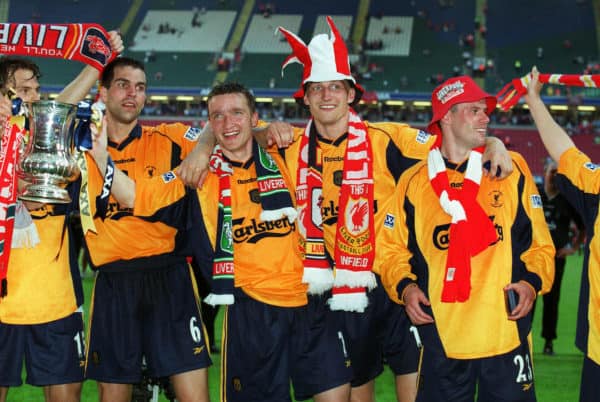
Awaiting at Cardiff’s Millennium Stadium were an Arsenal team brimming with world-class ability – one who would win two Premier League titles in the next three years.
For all Liverpool’s quality and cup pedigree, a side featuring David Seaman, Tony Adams, Ashley Cole, Patrick Vieira, Robert Pires and Thierry Henry were the undisputed favourites.
But those of the earlier generations would hope to avenge the Wembley defeats of 1950, 71 and 87.
What followed was one of the greatest FA Cup finals.
Even the most ardent Reds supporter would happily accept that Houllier’s men were comfortably second-best on the day, but their never-say-die attitude was out in full force.
Lady Luck was also shining on Liverpool, with Henchoz enjoying an unbelievable slice of good fortune before the break.
Henry rounded Westerveld and saw his effort diverted wide by the Swiss’ arm, but the beating sun had clearly frazzled the brains of the officials who saw nothing untoward.
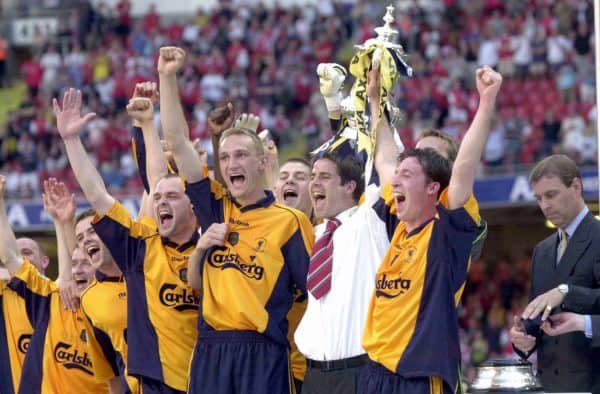
On another day, Henchoz would have been sent-off, Arsenal would have scored the penalty and the match would be receiving no column inches!
A rare chance then arrived for Liverpool in the second half as Heskey tested Seaman, but Henry somehow failed to connect at the other end, before Cole and Freddie Ljungberg both had efforts cleared off the line by Hyypia.
The Gunners’ almost embarrassing level of dominance finally paid off when Ljungberg timed his run, took the ball past Westerveld and finished clinically for 1-0.
At that point, with just 18 minutes remaining, Liverpool looked dead and buried, before Owen etched his name into Reds folklore forever.
The striker lashed home a ruthless finish from close range with 83 minutes on the clock, reacting quickest after a tussle in the box.
He saved the best for last, though, getting on the end of a stunning Berger pass, muscling his way past Lee Dixon and beating Seaman to send Reds into delirium.
It can be hyperbolic to say that one player has won a match single-handedly for his side, but it really did feel like that with Owen.
The scenes that followed in the Liverpool end were those of pure ecstasy as the Reds produced the definition of a smash-and-grab win to be crowned cup kings of English football.
One thing that is forgotten now, however, is that Fowler missed a glorious chance to put the icing on the cake in the dying moments, in what would have been a special moment for him personally.
It was Owen’s day, however, at a time when he was one of the most feared strikers in the world, winning the prestigious Ballon d’Or later that year.
The second of three cups had been won and Liverpool had clinched the sixth FA Cup in their history – incredibly, they have won it just once more in the last 20 years.
Whatever your opinion of Owen is today, the impact he made on that boiling hot Saturday two decades ago should always be appreciated.
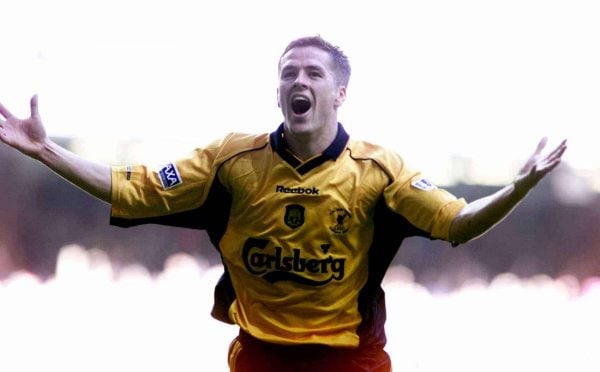



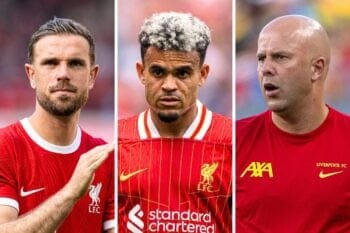
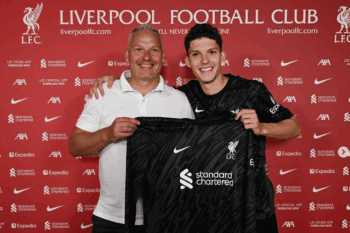






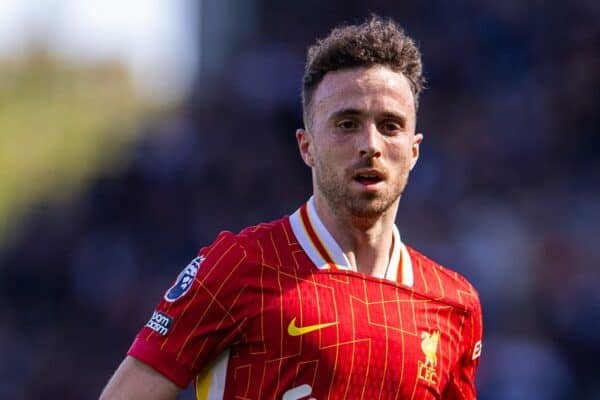
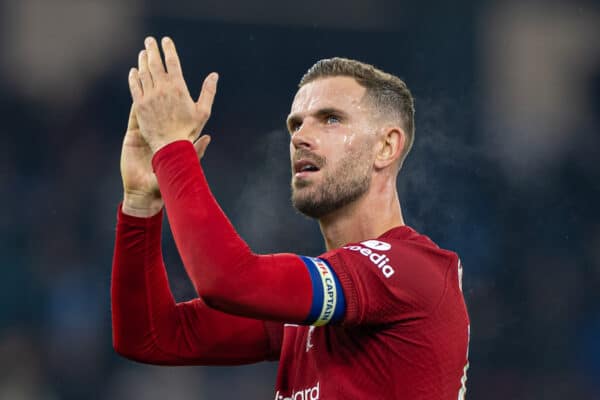



Fan Comments